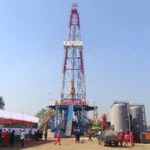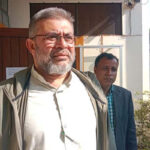On May 9, 2023, thousands of people took to the streets in major cities in Pakistan. They even targeted government and private institutions, especially those associated with Pakistan's powerful military, with attacks.
The targets included the army headquarters in Rawalpindi, the residence of a top military commander in Lahore (which was set on fire), and several other structures and monuments.
The protesters were mainly supporters of the Pakistan Tehreek-e-Insaf (PTI) and were protesting against the arrest of their leader and former Prime Minister Imran Khan.
Imran Khan was detained in the Islamabad High Court on corruption charges.
Although Imran Khan was released less than 48 hours later, the protests were seen as an unprecedented challenge to the military's rule.
The army has long been considered the most powerful and influential institution in Pakistan, maintaining authority in almost all areas.
Exactly two years later, on May 11, 2025, thousands of people took to the streets again. But this time they took to the streets not against the military, but to praise and support them.
Last week, India and Pakistan engaged in a brief but intense military clash, with both sides attacking each other's installations.
Such a major conflict has not been seen between the two countries since the 1971 war.
The domestic impact of this near-war conflict on Pakistan is clear: public support for the army has increased sharply, and it is seen as the force that will protect the country from Indian aggression.
A Gallup Pakistan survey of more than 500 respondents from May 11 to 15, 2025, found that 96 percent believed Pakistan had won the conflict.
According to preliminary data and survey trends provided to Al Jazeera, 82 percent of people rated the military's performance as "very good." Less than 1 percent expressed dissatisfaction.
Most notably, 92 percent of people said that their perception of the military has become more positive because of this conflict.
Transition from 'Black Day' to 'Just War Day'
On May 11, the day after US President Donald Trump announced a ceasefire between India and Pakistan, people took to the streets in Pakistani cities with cars and motorcycles.
They waved the national flag and carried posters praising the army, especially the army chief, General Syed Asim Munir. There was a sense of joy and relief in the air.
For the previous four days, Pakistan had been engaged in a tense military conflict with its arch-rival India.
Two weeks after 26 civilians were killed by armed attackers in Pahalgam, Indian-administered Kashmir, on May 7, India launched missile strikes on various locations in Pakistan-administered Kashmir and Pakistan's Punjab province, blaming Islamabad for the attack.
At least 51 people were killed, including 11 soldiers and several children.
Over the next three days, the two nuclear-armed countries fired missiles, drones, and artillery at each other, bringing the subcontinent's 1.6 billion people to the brink of all-out war.








